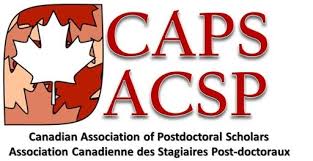The Fundamental Science Review, often referred to as the Naylor Report, was commissioned by the Federal Government to review Canada’s research, including basic and applied research in all disciplines carried out outside of government institutions. It summarises the current state of Canadian research, and makes wide-ranging recommendations for improvements going forward.
The executive summary provides a useful overview of the contents of the full Report, containing both a written account and a list of the major recommendations. Here are some of the key points:
Administration: The Review calls for greater cohesion, coordination, and accountability for Canada’s main funding bodies, namely the Tri-Council Agencies (CIHR, NSERC, SSHRC) and the CFI, through the formation of an overseeing National Advisory Council on Research and Innovation (NACRI), to replace the current STIC (Science, Technology and Innovation Council).
Funding: A substantial increase in federal research funding (30% higher than the current budget) is recommended, along with a rebalancing towards independent, investigator-led research (as opposed to targeted, priority-driven research). Adjustment of the distribution of funds is also suggested, with more emphasis on high-risk and multidisciplinary research, and a focus on areas that are currently considered underfunded including the social sciences, humanities, and mathematics. Greater and more consistent support for infrastructure and central facilities is also advised.
Personnel: Some of the common concerns for Canadian postdocs are recognised, including the confusing and inconsistent array of funding arrangements and values and the limited prospects for early career researchers. The importance of prioritising equity and diversity in recruitment and funding is also highlighted.
What does it mean for postdocs?
It is possible that some funding opportunities would be reduced in future years: a careful review of ‘matching’ arrangements, e.g., those offered by Mitacs, is recommended. It can also be argued that the Report does not go far enough to allow Canada to be truly counted amongst the world leaders in research.
However, the adoption of the entirety of the Report’s recommendations by the Federal Government would be of almost universal benefit to Canadian postdocs compared to the current situation, both for new recruits and for those who hope to continue their careers in Canada. As well as the obvious benefits of increased research funding, better consistency and clarity in the roles of the funding bodies and coordinated work towards defined objectives would make these funds easier to secure.
The recognition in the report of the problems facing postdocs and early career researchers is a good start. Issues such as the lack of enforced retirement for academics are raised, which will hopefully lead to improvements to the difficult career prospects that concern many of us.
What you can do
The response of researchers to the report has been centring around #SupportTheReport. It is crucial that Canadian researchers convince the federal government that implementing the recommendations of the Naylor Report will benefit both the research community and Canadian society in general.
The most important action you can take to Support the Report is to contact your Member of Parliament. The UBC PDA, in cooperation with Future of Research Vancouver, hosted a letter-writing party on Tuesday, August 29 at 4:00 p.m, in Room 1510 in the Life Sciences Centre. You can still write a letter to show your support – find tips here.
Read what the UBC PDFO Associate Dean had to say about the Review.
For ideas about how you else you can Support the Report, check out the campaigns linked below.
Further resources
The report:
Full report
Executive summary
Information:
UBC VP Research Office –highlighting UBC’s involvement in and engagement with the review. Includes a link to the town hall held recently at UBC
Canadian Association of Postdoctoral Scholars summary
Universities Canada – endorsement and links to further opinions and reactions
Campaigns:
Summer of Science – very useful guide for engaging with your representatives about the Naylor Report
Evidence for Democracy – guidance for writing to your representative
Students 4 The Report – a student-led campaign supporting the Report
Next Generation of Canadian Science – A Twitter campaign led by the Canadian Society for Molecular Bioscience



